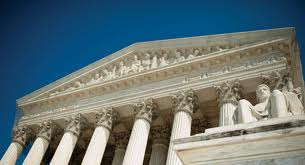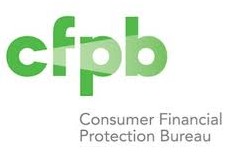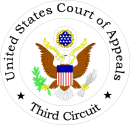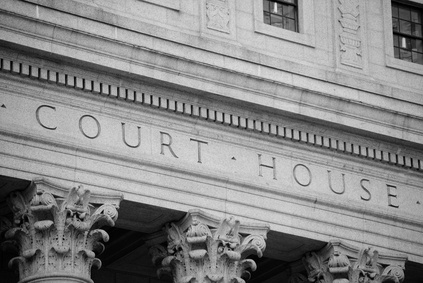The Fourth Circuit Court of Appeals held that a debt collector did not violate the federal Fair Debt Collection Practices Act (“FDCPA”) when it made multiple calls to a third party in an effort to locate a debtor. In Worsham v. Accounts Receivable Management, filed yesterday, a debt collector, who was unable to locate a debtor, instead placed 10 telephone calls to the debtor’s brother-in-law, Worsham, in May 2010. Worsham answered two of the calls and heard an automated message prompting him to press “1” if he was the debtor or “2” if he was not. On one occasion Worsham pressed “2” and then hung…
Posts published in “FDCPA”
Fair Debt Collection Practices Act
I have today’s transcript from oral argument before the Supreme Court in Marx v. General Revenue. Ms. Marx lost her Fair Debt Collection Practices Act (“FDCPA”) case against General Revenue. Under Federal Rule of Civil Procedure 54(d), which permits the court’s clerk to tax costs to a prevailing party, the trial court taxed her with General Revenue’s defense costs — not attorneys fees, just costs, and limited ones at that. Marx appealed to the Tenth Circuit Court of Appeals and argued she should not have to pay these costs because the FDCPA, at section 1692k(a)(3), only exposes her to costs if she brought the…
While the use of form pleadings is not unusual, it becomes dicey when attorneys seek fees from their use of forms as “original work.” But when you use a fee petition that itself is a form pleading and claim it too is “original work,” you are going to draw the ire of several federal district court judges in the Third Circuit. Yesterday, one plaintiff’s firm was front and center for a lesson on the use and abuse of form pleadings, drawing an admonishment from a Federal Judge sitting in the Eastern District of Pennsylvania that “it may not continue with…
When a law firm uses its letterhead to collect debt for its client, it “cannot disclaim the fact that he or she is engaging in the practice of law when using law firm letterhead,” states a recent joint opinion by the New Jersey Committee on the Unauthorized Practice of Law and the Advisory Committee on Professional Ethics. 1 Rejects Lawyers’ Use of Greco Disclaimers The Opinion directly contradicts the Second Circuit Court of Appeals’ decision in Greco v. Trauner, Cohen & Thomas, LLP.2 In Greco, the court explained that: attorneys can participate in debt collection in any number of ways,…
Prelude: In 2010, the Federal Trade Commission released a study entitled “Repairing A Broken System: Protecting Consumers in Debt Collection Litigation and Arbitration.” What follows is part two of a report on their latest repair efforts. In a February blog post, I explored the Federal Trade Commission’s press release equating a potential defense (the expiration of a limitations period) with a legal right. I’m headed back to that same press release to consider another questionable call from the FTC’s efforts to “repair a broken system.” So today, here is Chapter Two: “How to Confuse People Into Believing You Are Furnishing Negative Credit Information Concerning Them.”…
Sending verification in response to a consumer’s written demand for verification under 15 U.S.C. § 1692g, which also contains a cease and desist demand, does not violate § 1692c under a holding from the Western District of New York in Marino v. HoganWillig, PLLC, 11-cv-453 (W.D. NY April 24, 2012). The Court refused to read § 1692c(c) to prohibit sending a consumer § 1692g(b) validation because it would place a debt collector “into a frozen state where it could not seek to collect the debt because compliance with Section 1692g(b) would violate Section 1692c(c).” The court cited the unpublished opinion in Recker…
The Federal Trade Commission had an epiphany last week – debt collectors must disclose in their communications that a debt subject to a statute of limitations defense creates a “legal right” which prevents a creditor from filing a lawsuit. Read it here: FTC Press Release, 1/30/12. It only took the federal agency 33 years of enforcing the Fair Debt Collection Practices Act (15 U.S.C. § 1692) (the “FDCPA”) to come to this conclusion. Quite a milestone and quite a reflection of our times. Although I haven’t been working on FDCPA issues quite as long as my colleagues in Washington, I’ve…
A claim that a debt collector violated §1692g(a) of the Fair Debt Collection Practices Act (“FDCPA”) must be filed within one-year of the first communication, the Third Circuit recently held in Peterson v. Portfolio Recovery Associates, LLC, Case Nos: 10-2824 & 10-4013, 2011 U.S. App. LEXIS 11453 (3d Cir. June 6, 2011). In this decision, the first by a circuit court on the issue, the court specifically rejects the notion that subsequent communications by a debt collector can constitute separate and discreet violations of §1692g(a). Section §1692g(a) provides that a debt collector must provide a consumer with certain written disclosures…
Yesterday, the Third Circuit again held that a communication from a debt collector to a debtor’s counsel is not barred by New Jersey’s common-law litigation privilege. The Court reversed the District Court’s dismissal of a §1692f(1) claim relying on its decision last month in Allen v. LaSalle Bank. As I wrote last month in discussing Allen, the appeal in Ogbin was pending at the time Allen was decided (http://tinyurl.com/4rsyevr). This decision did not offer any surprises or further reasoning into why the state common-law litigation privilege is ineffective against FDCPA claims. The decision is available here: Ogbin v Fein Such
The FDCPA does not serve as a “back door” which would allow such a private right of action [for a bankruptcy discharge violation].
When a New Jersey law firm purchased charged-off debt, then filed suit to collect it, it found itself facing a Fair Debt Collection Practices Act (“FDCPA”) putative class action. The lawsuit alleged that Hudson Law Offices, P.C. violated the New Jersey Professional Services Corporation Act (“PSCA”) by engaging in the business of purchasing defaulted credit-card debt and then suing alleged consumers to collect those debts. In denying the law firm’s motion to dismiss the Complaint, a New Jersey Federal Court Judge found that the a law firm organized under the New Jersey PSCA is prohibited from engaging in any business…









